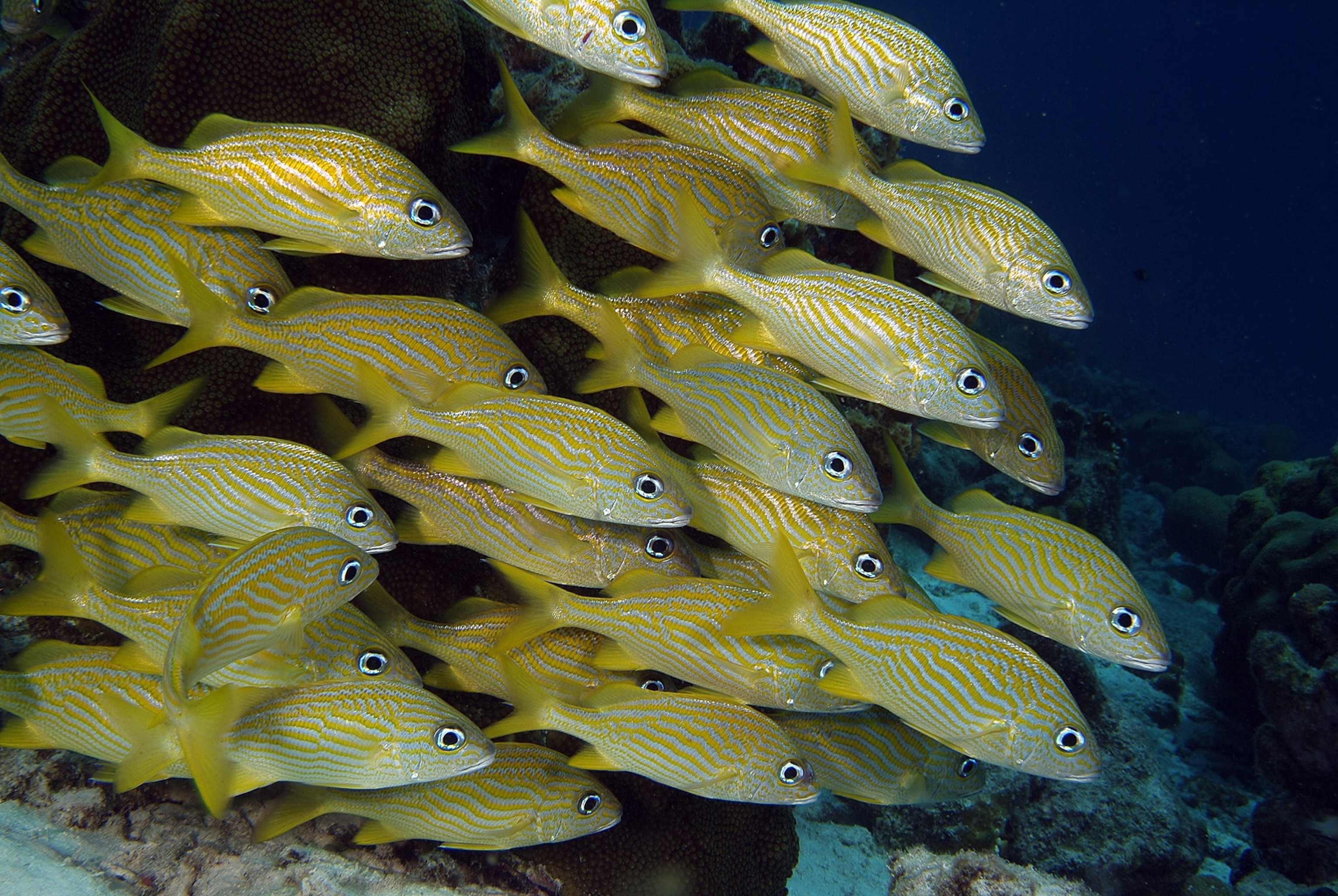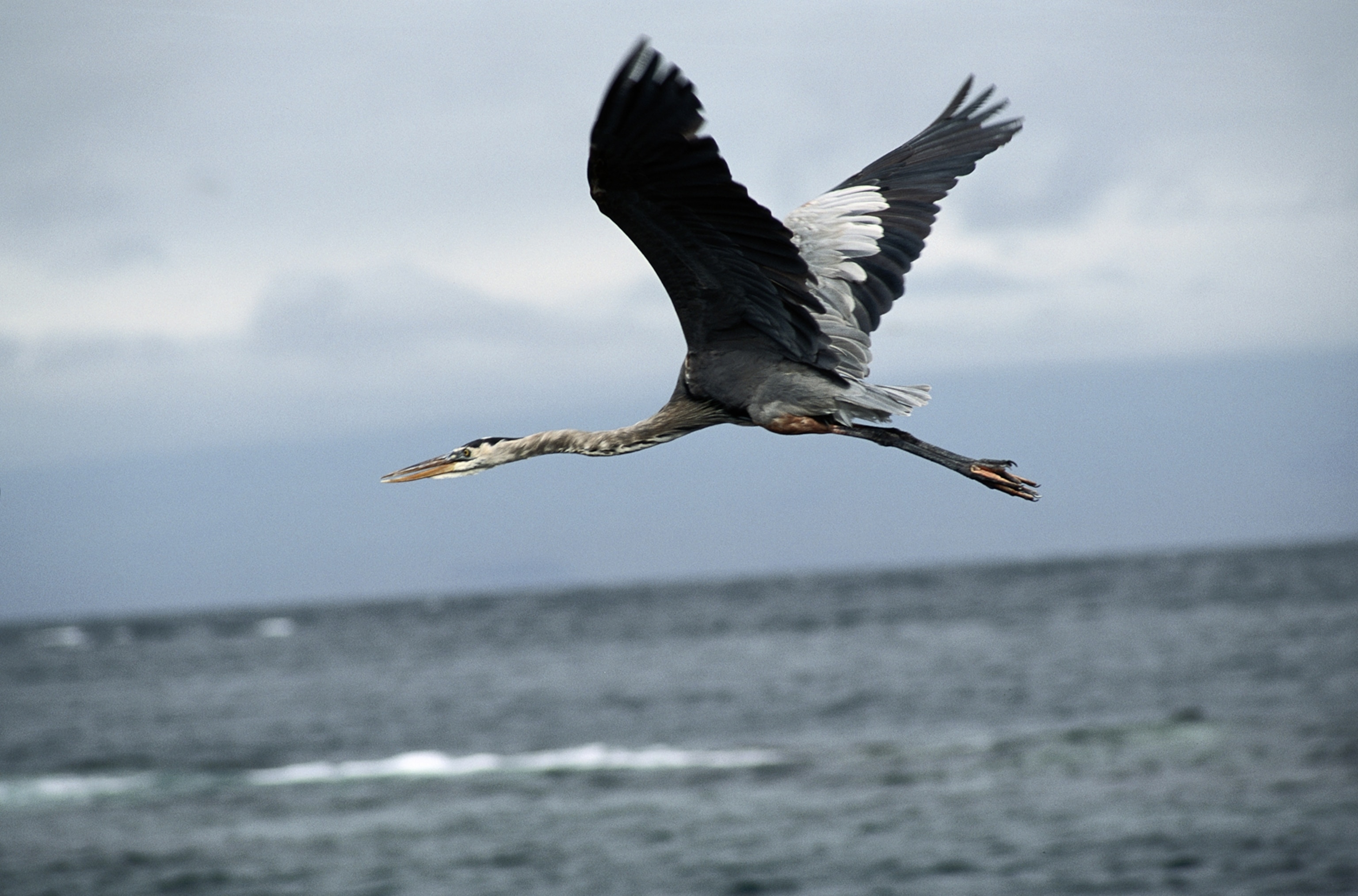
Blue Herons, Jellyfish, and Other Animals With Daily Commutes
We humans aren't the only ones in the rat race.
Your commute may be bad, but at least you don’t have to worry about blood-sucking parasites.
French grunts, a tropical Atlantic fish, “are major movers and shakers on the [coral] reef,” says Paul Sikkel, a marine biologist at Arkansas State University.
This species undertakes daily migrations from coral reefs to food-rich seagrass beds, returning home to the reefs in the morning. (Unlike most fish, which have vertical migrations, grunts move horizontally through the ocean.)
During the grunts' trek—up to a kilometer long—they're highly susceptible to infestation by tiny, parasitic crustaceans called gnathiids. ("Meet 5 'Zombie' Parasites That Mind-Control Their Hosts.")

In part because gnathiids aren’t very active on the reef during the day, Sikkel wondered if the fish's nightly journeys help them avoid the parasite, which can be fatal.
In experiments published in March, Sikkel and colleagues found support for this hypothesis: Grunts forced to stay on the reef at night acquired five times more parasites than those that traveled on their usual commute. So, at least for grunts, commuting not only provides dinner, but also protection.
Here are some other animals that risk leaving home each day to bring home the bacon.
Bioluminescent Creatures
Even the smallest marine animals—plankton—can make a big splash. The daily vertical migration of plankton from the ocean depths to the surface to feed may be the largest of its kind—at least in terms of biomass.
Bigger marine animals, such as fish, have nowhere to hide in the open ocean, so they have to make themselves as hard to see as possible, says marine biologist Edie Widder, founder of the Ocean Research and Conservation Association in Florida.
That's why bioluminescent creatures, including krill, squid, lanternfish, and dragonfish, create their own light chemically through organs called photophores. This allows them to become "invisible": Lighting themselves against the bright background of the sunlit ocean makes their silhouettes disappear when predators lurking below look up.
“Bioluminescence is absolutely critical” for this camouflage, Widder says. (See "Glowing Sea Beasts: Photos Shed Light on Bioluminescence.")
Their light organs match the sunlight filtering into the ocean so perfectly that “if a cloud goes over the sun and dims the sunlight, they can dim their bioluminescence,” Widder says. “It’s a phenomenal adaptation.”
There's just one catch.
The amount of sunlight making its way into the water column dictates how high some bioluminescent species will migrate on any given day. They "can’t go beyond whatever their light levels allow them to"—which means most don't get too close to the surface, where it's sunnier, Widder says.
Krill, however, produce bright light, allowing them to travel to the surface and "get to the dinner buffet."
Great Blue Heron
The average American commute ranges quite a bit, from under five miles in Stockton-Lod, California, to 12.8 miles in Atlanta, Georgia. Great blue herons can relate.

These birds may fly just a few yards or up to 20 miles away from their nests in search of food, says Charles Eldermire, bird cams project leader at the Cornell Lab of Ornithology in Ithaca, New York.
These birds work alone, flying out solo in search of prey including snakes, fish, frogs, gophers or even small birds. They return periodically throughout the day if they have young to feed, but even when not breeding will roost in flocks of up to hundred—a strategy to keep safe from predators, he says.
With an impressive wingspan of nearly seven feet, great blues have few predators besides bald eagles. But this video shows a great horned owl taking its chances, attacking a nest at Cornell’s Sapsucker Woods.
Golden Jellyfish
The golden jellyfish of Palau's Jellyfish Lake are, in a sense, solar-powered animals.

These jellies have zooxanthellae, algae-like organisms, living in their tissues. The zooxanthellae need sunlight to produce energy, so jellies follow the sun's progression across the sky around the lake each day.
When they reach the far side of the lake, the jellies turn back and follow the sun west again as it sets. In return, the zooxanthellae supply some of their energy and nutrients to the jellies.
Traffic on their commute has plummeted, though: Drought has significantly decreased the golden jelly population in recent years.
Have a question about the weird and wild world? Tweet me, leave me a note in the comments, or find me on Facebook. Weird Animal Question of the Week answers your questions every Saturday.